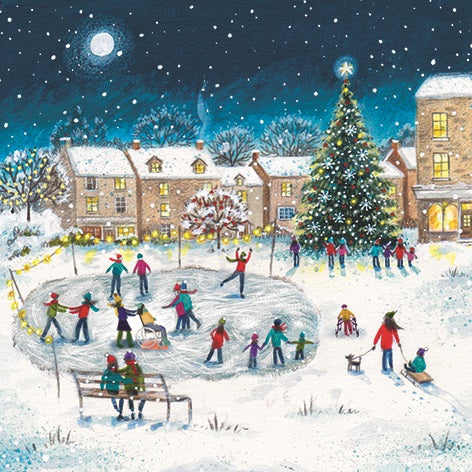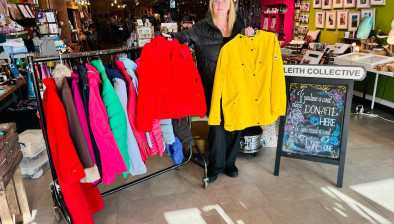Charity Spotlight: Disability charity reveals range of inclusive Christmas cards

The Scottish Housing News Charity Spotlight feature will highlight the vital work of charities across Scotland each Friday. To include your local charity, whether housing-related or not, send your story and images to us at newsdesk@scottishnews.com.
The lack of inclusive Christmas cards on the market has prompted a Scottish charity to release a range of festive greetings cards featuring disabled people.
Cerebral Palsy Scotland has produced two card designs that include wheelchair users and people using walking frames.
Cerebral palsy is a lifelong condition that affects a person’s ability to control their movement, posture and balance. One in three people with cerebral palsy are not able to walk, and use wheelchairs or walking frames to support their mobility.
Head of fundraising and communications, Isla Campbell Lupton, said: “We want to ensure that the cerebral palsy community are included and represented in all aspects of society, including in the images we see around us.
“This is the second year we have produced inclusive Christmas cards, which is just one aspect of our wider work to raise awareness of cerebral palsy. It’s right that Christmas cards should feature images of all of us, and not just some of us. It’s another way of positively representing disability in day-to-day life and celebrating diversity.
“Hopefully other businesses and charities can join us and we can see more greetings cards featuring disability available on the market in the coming years.”
Caitlyn Fulton is a graduate and digital creator who has cerebral palsy and lives in Kilmarnock. Commenting on the card, and on the impact Cerebral Palsy Scotland has had on her day-to-day life, she said: “It’s fantastic that Cerebral Palsy Scotland have brought back their inclusive Christmas cards this year. I’ve purchased both sets to give to family and close friends over the festive season, beautiful designs too.
“While conveying an important message of diversity and an inclusive community, each set also shows different mobility equipment that individuals with a physical disability, especially cerebral palsy can use to be independent - a wheelchair and/or a kaye walker. Both of which I have used throughout my life.
“I’m currently receiving physiotherapy sessions from Cerebral Palsy Scotland which I’ve benefitted greatly from since childhood. Now as a young adult with cerebral palsy, the effects of my condition can be more challenging to manage due to my increased muscle tone and so it’s important for me to be able to maintain my independence and overall well-being. Sessions are tailored to an individual’s needs whilst being led and supported by therapists who specialise in cerebral palsy.
“Cerebral Palsy Scotland is a vital organisation, raising awareness of the condition while providing a variety of services and support to those of us who are affected and our families.”
Alan Gray lives and works in Edinburgh and has cerebral palsy. Commenting on the charity’s cards, and on the importance of representing disability in the media, he said: “I think this year’s Christmas card designs from Cerebral Palsy Scotland are excellent. It’s so creative and refreshing to see disability subtly feature in a festive scene. It helps to integrate disability within society. The concept instantly made me smile and Cerebral Palsy Scotland’s cards will be the ones I send this year.
“I feel there has been a huge positive shift in the representation of disabled people within the media. This is seen in the growth of profile in disabled athletes who are seen on TV adverts for example, as well as individuals who have a disability featuring in reality TV which helps integrate disabled people within society. However, there are other areas of the media that are unfortunately misrepresenting disability. I hope in years to come this continues to improve as the media is a vehicle to break down barriers.
“How disability is represented in the media matters to me. Depending on how it is done it gives me a mixture of feelings which can be negative and positive depending on context. It is vital when representing disability within the media, the messages that are being portrayed are considered. The reason for this is because it will affect how well barriers are challenged and generally how well disability is integrated as part of day-to-day society.”
The inclusive Christmas cards can be viewed and purchased via the charity’s online shop.








